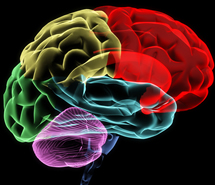
The 32nd annual International Society for Technology in Education (ISTE) conference kicked off June 26 with a lesson relating brain function to teaching and learning, and attendees explored how brain sciences might influence how educators deliver instruction.
Educators must “help today’s students prepare for tomorrow’s complexities,” said new ISTE President Holly Jobe in opening remarks. This includes helping students learn to love learning, and simply helping students learn how to learn.
“Technology does, and can, provide a gateway” to a vast array of learning experiences, Jobe said. “The walls of the classrooms are coming down.”
And technology can help students see other ways of thinking, but also helps them to identify commonalities when it comes to learning in different countries and cultures.
For more information on brain research and education, see:
The Science of Learning: How Current Brain Research Can Improve Education
Jobe challenged ISTE 2011 attendees and said that educators are not tapping technology’s potential in classrooms because they are not engaging students.
“[We must] meet them in their world,” she said, so that they can become “involved and engaged in their learning,” she said.
The opening keynote featured Dr. John J. Medina, who wrote Brain Rules: 12 Principles for Surviving and Thriving at Work, Home, and School. Medina presented a perspective on how different physiological factors of the human brain embrace and shape student potential.
Medina told the audience that certain brain myths, such as the oft-quoted adage that humans only use 10 percent of their brains, are not true. In fact, scientists and researchers don’t know very much about how the brain actually works, but what they do know might help to inform instruction.
“Even though we don’t know squat about how the brain works, we’re actually not clueless,” he said.
At its basic level, the brain is designed to solve problems, for survival, in an outdoor setting with unstable meteorological conditions and in near-constant motion.
“If you wanted to design a learning environment that was directly opposed to what the brain is designed to do…” Medina said, to much audience laughter.
Medina’s talk focused on the fourth brain rule found in his book: every brain is wired differently from every other brain and learns in ways unique to that wiring. He likened brain wiring to a system of roads, beginning with an interstate highway system and delving into a state highway system, city roads, and boulevards and alleyways.
For more information on brain research and education, see:
The Science of Learning: How Current Brain Research Can Improve Education
At the interstate level, all brains are wired identically. At the state level, brains are pretty similar. Massive differences appear at the boulevard and alleyway level—and of course, all of human learning occurs in the boulevards and alleyways, he said.
The boulevard and alleyway level operates on two notions: learners create a database of learning and facts and memorize that database, but then as soon as they memorize that database, they must be able to improvise off of it.
“Any educational environment that only emphasizes one or the other is failing the human brain,” Medina said. He told a story in which a school superintendent asked him if there might be a way to develop a cognitive neuroscience tool to prescreen an applicant pool for teacher competency.
A good teacher might have “theory of mind,” or insight into his or her students’ own mental states, which, in turn, influence student behavior. For instance, a teacher may know when students are bewildered, or inspired, and adjust instruction accordingly.
Medina questioned whether a technology can be developed to detect when a student is confused or inspired by a lesson and adjust instruction.
“Can you give a computer the gift of theory of mind?” he said. Such a tool would be a hardware/software combination that would involuntarily detect a puzzled student, determine where the gap in understanding lies, and then adapt in situ.
For more information on brain research and education, see:
The Science of Learning: How Current Brain Research Can Improve Education
- 4 ways to support work-based learning - April 23, 2024
- Prioritizing inclusivity in game-based learning - April 22, 2024
- Friday 5: Universal Design for Learning - April 19, 2024

